
Enhancing Student Outcomes and Teacher Practice through Math Mastery: A Comprehensive Study Tour and Curriculum Framework Development.
As a primary school teacher with ten years of classroom experience, I’ve had the opportunity to teach across year levels from Prep to Year 3. Throughout my teaching journey, I’ve developed a strong passion for ensuring that every student feels a sense of success in the classroom and equally, that every teacher feels confident and equipped to deliver high-quality lessons. Over time, I’ve become increasingly interested in how we can bring greater consistency and clarity to the way we teach mathematics across the early years.
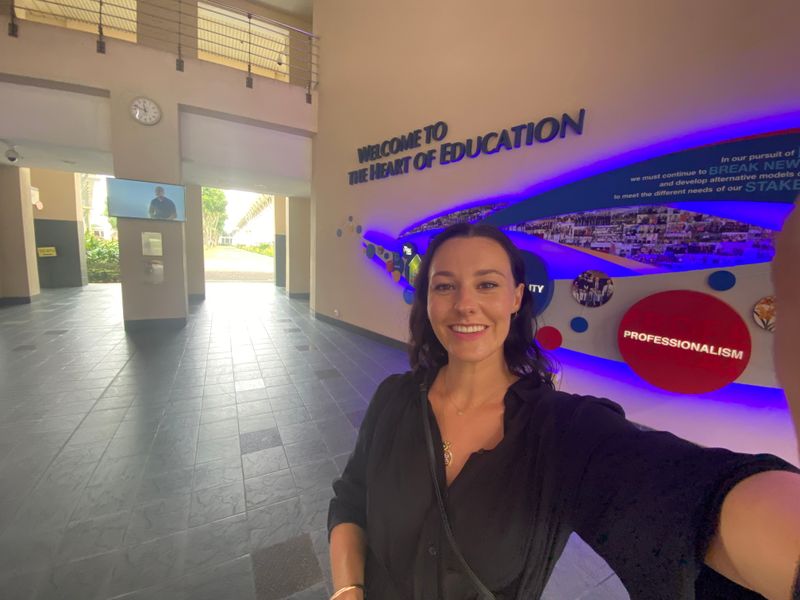
In 2024, I was fortunate to be awarded the inaugural Toowoomba Grammar School Teaching Fellowship to explore this interest more. My proposal, titled Enhancing Student Outcomes and Teacher Practice through Math Mastery: A Comprehensive Study Tour and Curriculum Framework Development, focused on investigating how the Math Mastery approach could strengthen both student understanding and teacher instruction in mathematics. This opportunity took me to Singapore to investigate the Math Mastery approach - an internationally recognised model of mathematics instruction that supports every student to achieve deep understanding through carefully sequenced, explicit teaching.
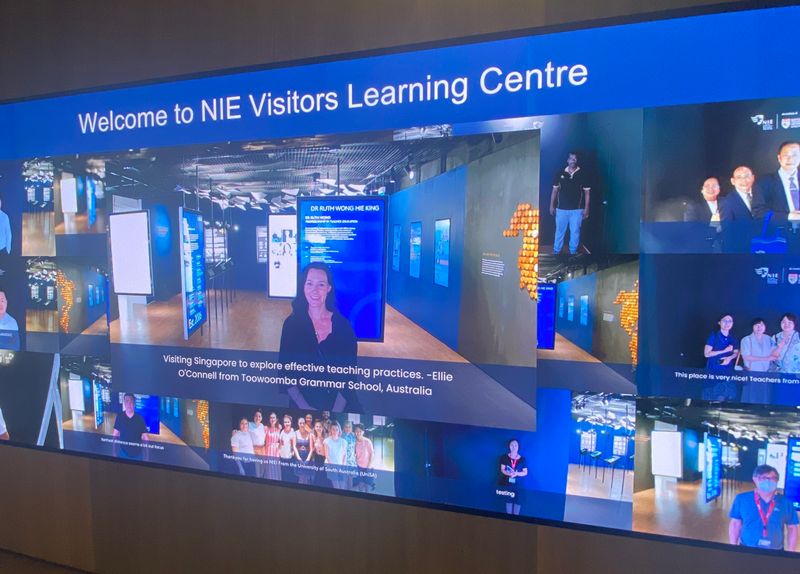
Why Mathematics? Why Now?
Across Australia, there is growing national concern about the long-term decline in mathematics achievement. Reports such as the Gonski Review (2018) highlight that many students are not mastering the basic skills needed for future learning, and that teachers need more explicit, structured tools to support all learners. In the early years of schooling—where concepts are first introduced, and mathematical mindsets are formed—it’s crucial that instruction is clear, consistent and effective. Gaps in understanding at this stage can have long-lasting effects on a child’s confidence and progress. The fellowship was an opportunity to examine international best practices and bring back evidence-informed strategies that could enhance both student outcomes and teacher practice in our own School.
Learning from Singapore: Schools and Insights
During my study tour in Singapore, I visited two leading international schools: Dulwich College and Invictus International School. Both schools use mastery-based approaches to mathematics, with structured, well-sequenced programs designed to develop deep conceptual understanding. At Dulwich College I observed math lessons from Years 1 to 5 that emphasised both mastery and practical application. The classrooms fostered a calm, focused learning environment in which teachers guided students through new concepts using clear, structured instruction, ensuring mastery through modelling, guided practice and checking for understanding before progressing. I also engaged in discussions with the school’s mathematics leadership team, who shared their planning processes and how they support teachers to differentiate within whole-class teaching.
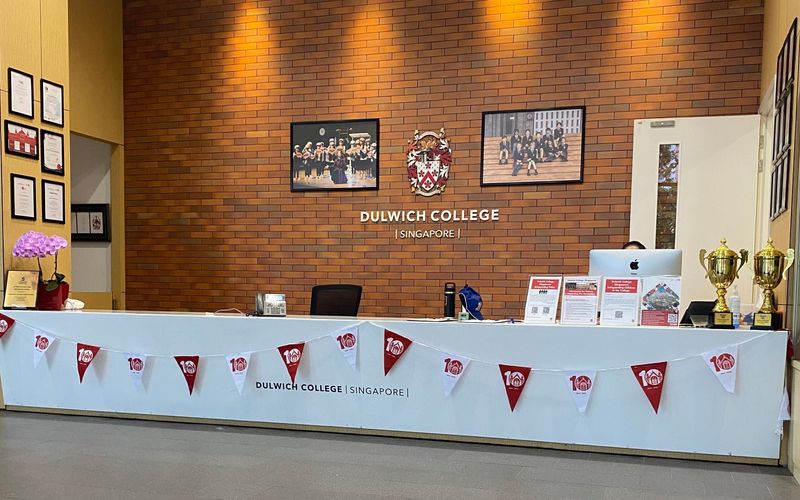
Invictus International School offered a contrasting yet equally valuable perspective. With a diverse cohort of learners and a flexible curriculum model, their team demonstrated how mastery principles can be embedded in a range of contexts. I also had the opportunity to meet with local educational consultants and curriculum developers, who offered insights into how Singapore’s national curriculum supports cumulative learning, daily review and concept mastery from the early years onwards.
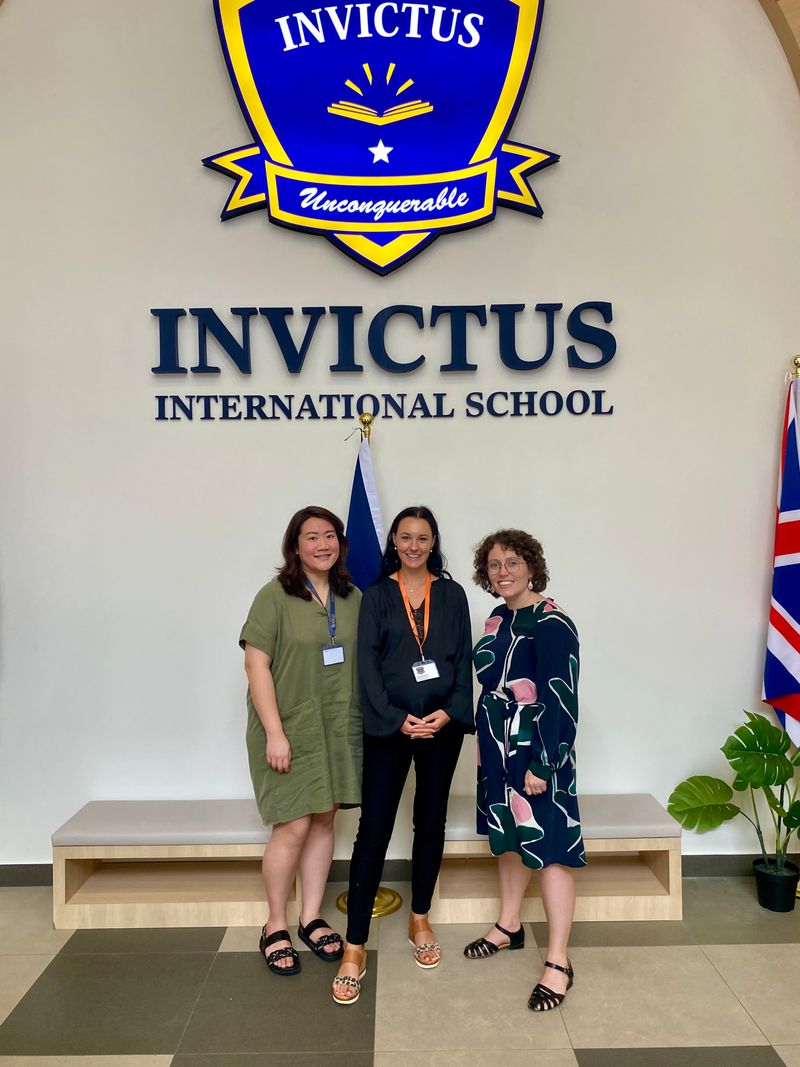
Key Findings: What Makes Mastery Work?
My observations confirmed the power of structured, explicit teaching in building strong foundations in mathematics. These were the key elements that stood out across all settings:
- Clear Learning Objectives
Teachers clearly define what students need to know and be able to do at the end of each unit or lesson.
- Whole-Class Instruction with Embedded Differentiation
Rather than streaming students by ability, mastery classrooms taught concepts to the whole class while using questioning, scaffolding and targeted support to meet individual needs.
- Corrective Instruction
Students who don't achieve mastery receive additional instruction or support to address knowledge gaps.
- Cumulative, Carefully Sequenced Learning
Each lesson built directly on the last, with time allocated for review and consolidation. This ensured that no student was left behind and that concepts were truly understood before new material was introduced.
- Mathematical Language and Reasoning
Teachers modelled precise vocabulary and encouraged students to explain their thinking. This supported deeper reasoning and helped students internalise core concepts.
- Learning Routines
Clear instructional routines and behaviours are established in every classroom, reinforcing expectations and supporting learning.
- Lesson Resources
Hands-on materials and visual examples are carefully chosen to help students connect with new concepts in ways that suit their learning needs.
- Fluency
Essential number facts are practised until automatic, helping students reduce cognitive load, enhancing students’ ability to focus on new and more complex ideas.
- Calm, Confident Learners
Most powerfully, students appeared confident, focused and proud of their mathematical thinking. The clear structure and shared learning journey contributed to a positive and inclusive classroom culture.
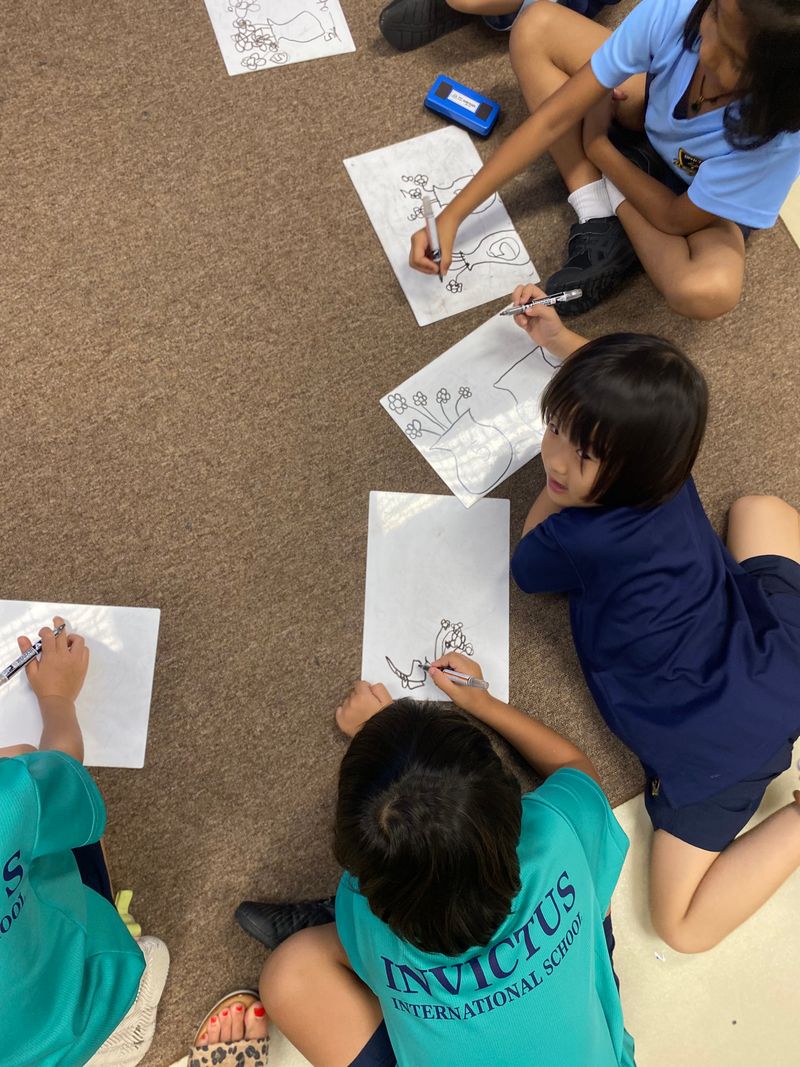
Global Perspective: Insights from Kinder World School
As a part of my research, I was able to engage in a conversation with Peter Baker, Principal Supervisor of 13 KinderWorld International Schools across Vietnam, I was able to dive deeper into how the Math Mastery approach works in large, diverse educational settings. These schools have adopted the Singapore Math model, a mastery-based framework built around explicit teaching and cumulative learning - many of the same principles I explored during my study tour.
Peter shared that their decision to adopt this approach was driven by a need for a consistent, evidence-based program that teachers could pick up quickly, deliver confidently and implement cost-effectively. “We started the explicit teaching model a couple of years back,” he explained. “We call it the KinderWorld Model. Retrieval practice to strengthen knowledge and problem-based application of learning is also included. I think it certainly makes a difference.”
What stood out to me in our discussion was just how closely their journey mirrors our own at TGS. We have already embedded strong practices in literacy through well-structured, whole-school programs that align with explicit teaching and the science of learning. However, mathematics remains an area where we see room for greater consistency and greater gains.
While our data confirms that we continue to perform above the state average in mathematics, recent NAPLAN results highlight a national decline in numeracy - a trend that we are aiming to avoid in our own School’s results. While we continue to do well, we have an opportunity and a responsibility to do even better for our boys. This is not just a local issue. In 2015, the Office of the Chief Scientist collaborated with ACARA to examine schools across Australia that had made significant improvements in numeracy over two years. Their report found that mastery-oriented environments were a consistent feature in high-performing schools (Smith et al., 2028).
When I asked Peter how the performance of his students compared to their peers in Australia, his response was compelling:
“We’ve had feedback from parents - many of whom are teachers - saying that when their children return to Australia, they are at least one to two years ahead in mathematics compared to their peers at home.”
This reinforces what global research has been saying for some time: structured, explicit, mastery-based teaching works. And more importantly, it works for all learners - not just the confident few.
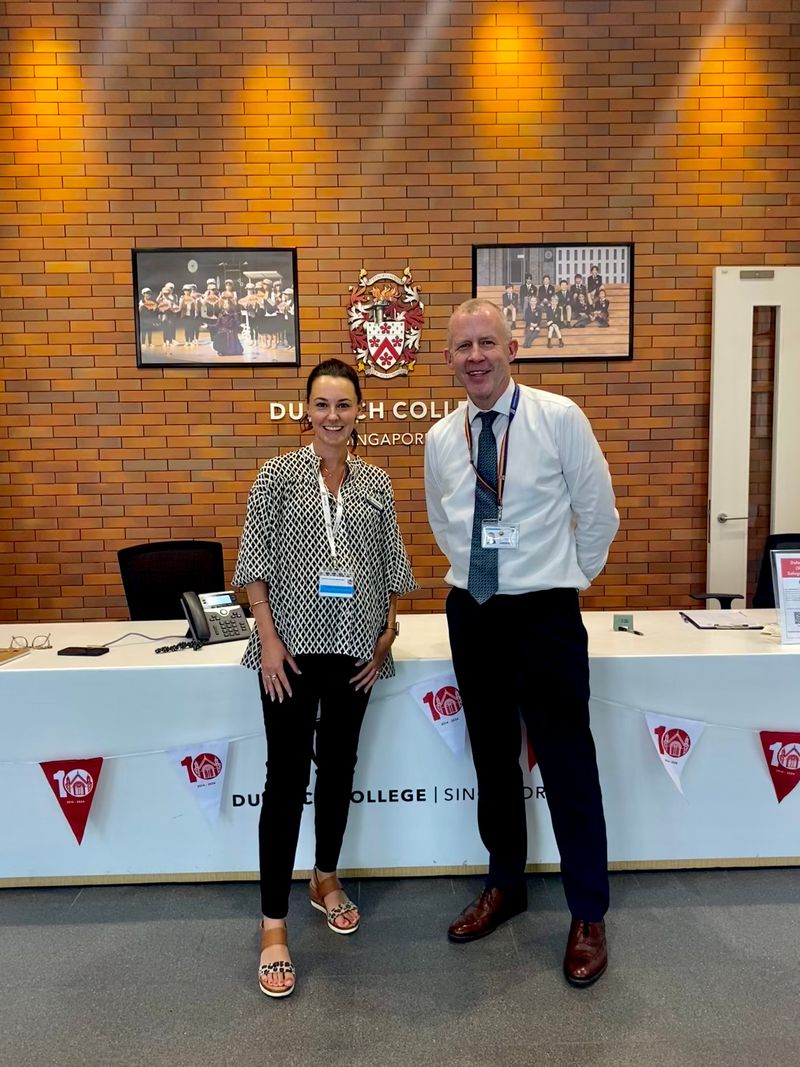
Bringing It Home: What’s Next for TGS?
I’m incredibly grateful for the opportunity this fellowship has provided - not only in shaping and deepening my own practice, but in contributing to a broader, shared vision for mathematics at TGS. This experience reinforced my belief that every student can succeed in mathematics when we give them the right tools, time and teaching. We are now laying the foundations for a clear and united approach to numeracy, one that will equip every boy with the confidence and skills to succeed - not just in the classroom, but throughout their schooling and beyond. And just as importantly, we’re building a community of confident teachers who are equipped to deliver lessons that are clear, consistent and deeply impactful.
I would like to sincerely thank Dr John Kinniburgh for granting me the opportunity to undertake this Fellowship. His support and encouragement throughout the process has been instrumental, and I am truly grateful for his guidance and mentorship. Dr Kinniburgh’s commitment to prioritising high-quality professional development for staff continues to shape a culture of growth and excellence in teaching and learning at TGS.
Latest Blog
Remembering Private Colin Stirling, a TGS Old Boy (1899-1900)
This was the headline that screamed out on the pages of the Toowoomba Chronicle and Darling Downs General Advertiser on Thursday, 15 August 1901. With ANZAC Day just last Friday, this week we continue to honour many of our Old Boys who gave the ultimate sacrifice including Private Colin Stirling, a TGS Old Boy (1899-1900) and our first former student lost in the Boer War. The story began with: “News was received on Tuesday afternoon that in an engagement at Kopjesfontein, on the 6th instant,…
Honouring Tradition: Toowoomba Grammar School and ANZAC Day
This year marks 98 years since TGS and the 13 Army Cadet Unit (Toowoomba Collective Unit) first participated in ANZAC Services in Toowoomba. The School's commitment to these services is a testament to its deep-rooted military traditions and the enduring spirit of remembrance. Mounties out the front of School House in 1908. A Legacy of Service Toowoomba Grammar School's military traditions date back to its early days. The School's Cadet Unit, formed in 1892, has been a cornerstone of its…
Outdoor Pursuits and Activities Week - Developing Good Character Beyond the Classroom
We offer a range of enrichment activities for our boys, but the last week of Term 1 is a very special opportunity for all of our Senior School students. It's Outdoor Pursuits and Activities Week, which provides age-appropriate physical challenges in a safe, well-supervised environment. Activities on the various camps may include ropes courses, rock climbing, bodyboarding, surfing, mountain biking and canoeing. The aim is to foster a love of the outdoors and an appreciation of the environment.…
Stories behind key TGS staff helping shape our students
It was my great privilege to join TGS as Head of House - Boyce Boarding in 2024. The opportunity to lead these young men of character on their TGS journey carries great weight but is also enormously exciting. Embarking upon this project alongside my wife Meg as Boyce Boarding House Manager strengthens the team further. I am hopeful that we will demonstrate to the boys how positive relationships can foster a warm and supportive environment. I know that many of our boys are familiar with strong…
More Than Just an Education and That Makes All the Difference
Toowoomba Grammar School excels in its extensive co-curricular programs, particularly in performing arts and sports. Our boys learn that success comes from hard work and dedication. This ethos is inspired by quotes like “You don’t have to be great to start, but you have to start to be great,” “The harder I work, the luckier I get” and the words emblazoned on our P.B. Hauser Aquatic Centre wall “Success is the celebration of preparation.” These opportunities allow students to excel in programs…
Stewardship: Leading the Way in Safety, Sustainability and Security
However, the challenges facing the Director of Facilities, Mr Bengie Dickeson and the Director of Information Technology, Mr Ron Robinson certainly are. This month's weather has been nothing if not unpredictable and it's in those conditions that both these men's skills come to the fore. With Tropical Cyclone Alfred and its threat to our School campus and community - Mr Bengie Dickeson and Mr Ron Robinson played integral roles in keeping everyone and everything on our 150-year-old campus safe.…
Pursuing New Horizons in Horticulture
Jake Moon is a sixth-generation primary producer. He is dedicated to agriculture and is currently working at his family’s St George farming enterprise, tackling some of the sector’s biggest challenges. The 28-year-old says his family moved to the St George irrigation precinct in 1978, initially growing rockmelons and watermelons, hence the business name Moonrocks. Seasonal and market changes led them to switch crops frequently, growing grapes, broccoli and even wax flowers over the years.…
Crushing it at Cricket and Conveying Culture
He explains that he’s named after Yarramundi, a respected and influential leader of the Richmond tribes of the Dharagnora (Hawkesbury-Nepean region of New South Wales) and a respected elder of the Boorooberongal clan of the Dharug people. “I’m proud of my culture and excited to have just started learning Dharug Dalang as part of the language revitalisation with my family.” During one week late last year he juggled exams, balanced representative cricket in Mackay with being the emcee of the…
Disappointment: A Necessary Part of School Life
Schools are inherently hopeful and happy places. Their natural focus on growth, connectedness and preparing youth for a better future creates an optimistic atmosphere in which ambitions are born. These positive emotions and experiences lay the foundation for our expectations and while these can be highly motivating, they come with a catch: the greater our expectations, the greater the disappointments, too. Disappointment is not a popular feeling. Rightly so, not many of us wish to feel sad,…